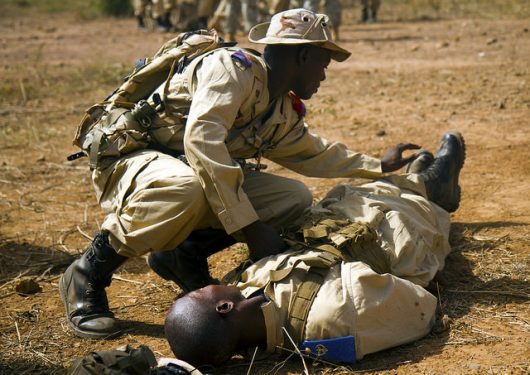US Benefits from Foreign Aid to Burkina Faso

To the public, information about the U.S. benefits from foreign aid to Burkina Faso other countries is largely absent. Meanwhile, aid to Burkina Faso is at risk. After the election of President Trump in 2016 and his “America First” policy that pushes for decreases in U.S. humanitarian aid up to 37 percent, aid programs operating in Burkina Faso are placed in a questionable situation. Will they be able to continue operating?
The Marie Stopes Ladies
The Marie Stopes Ladies is a nongovernmental organization that works to provide family planning advice and sexual health-related services to the people of Burkina Faso. This country has an unsustainable fertility rate of 5.5 births per woman and is in desperate need of the services the MS Ladies provide. With policies such as “America First,” coupled with a push to cut funding towards any organizations which abortion and post-abortion care, organizations such as the MS Ladies, which was previously entirely funded with a grant of $1.25 million from the USAID, will no longer be eligible for any money. The nongovernmental organizations remain ineligible for funding even if the abortion care and advice are funded by other sources.
Given the reality of the foreign aid situation and the fact that the existence of many organizations, not just the MS Ladies, is at risk, it is important to address the many U.S. benefits from foreign aid to Burkina Faso—and leverage these benefits as a motive to sustain and possibly increase the aid budget.
Benefits for Burkina Faso and for the US
Intuitively, one should know how U.S. aid benefits Burkina Faso: efforts are focused on providing security, education and health-related programs. In fact, eradicating malaria in Burkina Faso is part of the President’s Malaria Initiative, designed under the administration of President Bush to treat and prevent malaria in sub-Saharan Africa. Thus, Burkina Faso would benefit from mitigating hunger, fostering education and economic growth, as well as increased life expectancies through a healthier population.
Yet, these benefits are also part of how the U.S. benefits from foreign aid to Burkina Faso. In fighting malaria in Burkina Faso, the U.S. becomes closer to reaching the goals of the President’s Malaria Initiative. By providing food security and treating other illnesses, the U.S. helps create a country that is more economically viable and can serve as a potential economic partner. While the top import to the United States from Burkina Faso is gold, the U.S. has many investment possibilities in an emerging economy through its communications and energy sectors, not just mining.
Moreover, working with and providing humanitarian aid to Burkina Faso fosters greater safety at home. U.S. relations with Burkina Faso often focus on counterterrorism efforts, as well as general peacekeeping. Maintaining friendly relations also supports the U.S. goal of democratization in the region, a goal which truly hits the pulse of patriotism. To support democracy and peacekeeping abroad, what should be an essential underlying ideology of the United States, offers a far more rational notion of patriotism than the entirely self-interested rhetoric of “America First.”
The Support of US Citizens
The U.S. citizens generally support foreign aid. The U.S. benefits from foreign aid to Burkina Faso because the people from the U.S. believe it is a good thing. Only 5 percent of Americans, according to a Kaiser Family Foundation, knew how little the U.S. spent on foreign aid. The average guess was 26 percent of the federal budget. The actual total is less than 1 percent.
Once made aware of the discrepancy, less than 30 percent of participants thought the U.S. should decrease its foreign aid budget. Policies such as “America First” work as misdirections: they suggest to a public which is comfortable with, and supportive of a much larger foreign aid budget, that the U.S. is overspending. Providing aid, instead, proves governmental responsibility, and efficacy, to its people.
The Human Development Index value for Burkina Faso (assessed in 2017) is at 0.423 and it ranks the country in the bottom five countries in the world. Yet, while there is evidence Burkina Faso needs aid, in ten years it saw its value increase over 23 percent. That same span of time saw the average life expectancy increase over five years, and the average number of years of schooling increased by 64 percent. To continue these trends, the U.S. needs to continue providing aid, both for Burkina Faso and for itself.
To really put “America First” means also to care about the rest of the world. The U.S. benefits from foreign aid to Burkina Faso, but the U.S. needs to continue working to provide greater benefits for both parties.
– William Wilcox
Photo: Flickr
